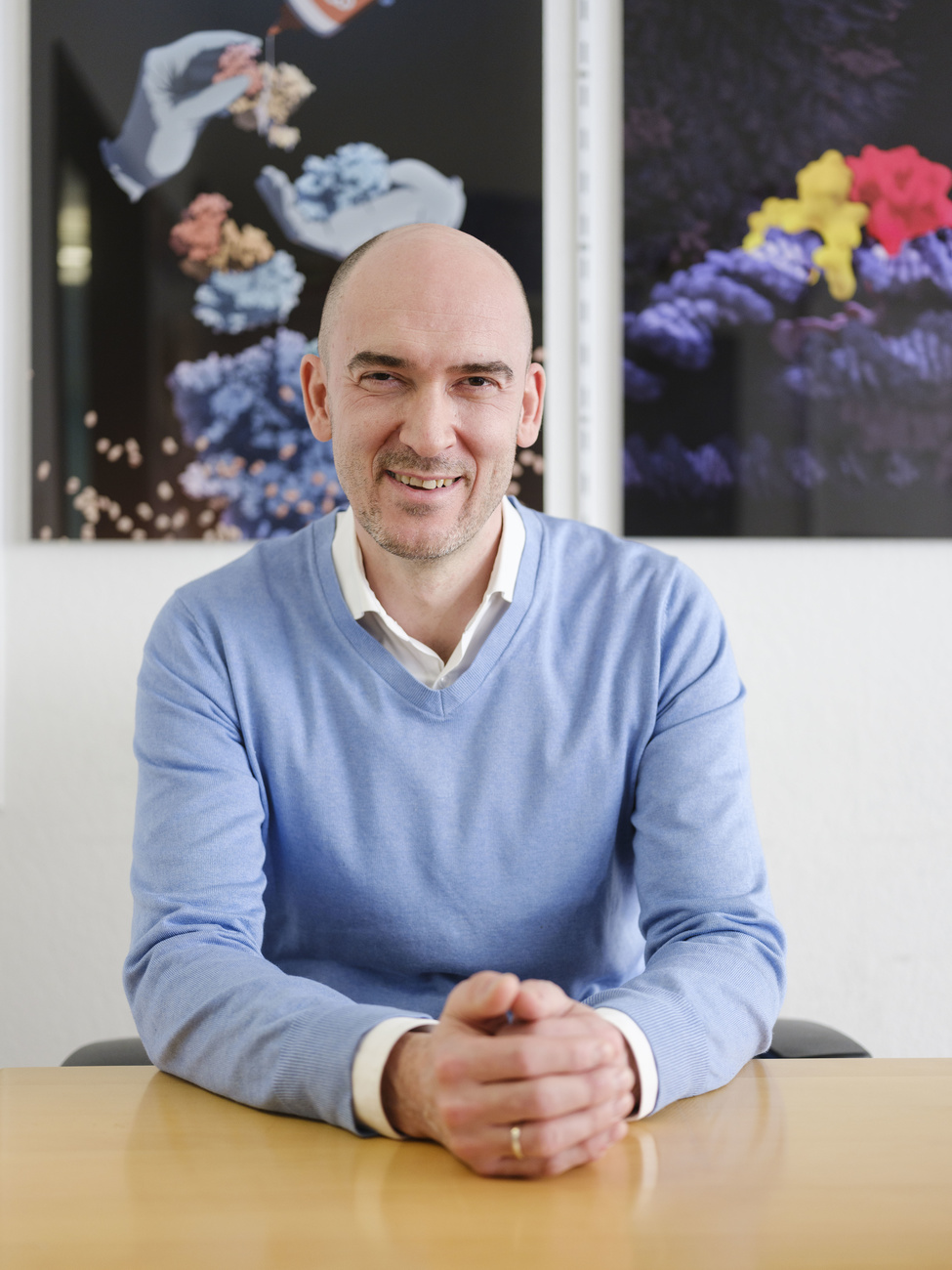
Basel biologist wins science prize for thalidomide insights

Structural biologist Nicolas Thomä has been awarded this year’s Otto Naegeli Prize for medical research, considered one of the most prestigious scientific awards in Switzerland.
German-born Thomä, from the Friedrich Miescher Institute for Biomedical Research (FMI) in Basel, is particularly concerned in his research with the degradation of disease-causing proteins, the FMI said in a statementExternal link on Tuesday. He and his team showed how some small molecules contribute to targeted protein degradation by functioning as “molecular glues”.
“Such molecular glues have the potential to target proteins that were previously thought to be undruggable,” the FMI wrote.
Every two years, the Otto Naegeli Foundation awards the prizeExternal link to outstanding personalities in medical research. The prize was established in 1960 in memory of the Zurich researcher and lecturer of internal medicine, Otto Naegeli (1871-1938).
Worth CHF200,000, the prize is awarded to researchers in Switzerland with the aim of stimulating medical and biomedical research. It recognises outstanding work on new biological mechanisms of action or therapeutic approaches.
Research from Thomä’s laboratory explained how the molecular glue thalidomide and its analogues function at the molecular level.
From 1957 thalidomide, marketed by West German company Chemie Grünenthal, was used to treat nausea during pregnancy. It gained notoriety at the beginning of the 1960s when it was discovered that it caused birth defects, usually involving babies’ limbs, whereupon it was withdrawn from the market. Later, however, the active ingredient experienced a renaissance in the fight against various forms of blood cancer. This is because thalidomide can mark disease-causing proteins as waste and release them for degradation, which causes the cancer cells to die. This video explains how.
However, thalidomide can also interact with proteins that are important during embryonic development in the womb, which is probably the cause of the malformations.
New therapeutic drugs
The disclosed mechanism of action of thalidomide is groundbreaking for the next generation of therapeutic drugs, according to Thomä. The findings would also make it possible both to recognise and minimise undesirable side effects of drugs and to attack several disease-causing proteins simultaneously with one drug, he said.
Thomä said he would like to use the CHF200,000 ($210,000) prize money to develop a new generation of drugs based on the molecular glue principle. This is because many proteins behind diseases such as cancer, cardiovascular diseases or diabetes cannot yet be tackled with traditional methods, he explained.
Thomä, 50, has been working at the Friedrich Miescher Institute since 2006. Previously, he conducted research at the University of Cambridge in England, at the Max Planck Institute for Molecular Physiology in Dortmund (Germany) and at the Memorial Sloan Kettering Cancer Center in New York City.
The award ceremony will take place on June 14 at the Biozentrum of the University of Basel.

More
The Swiss politician who learnt to live with the effects of thalidomide

In compliance with the JTI standards
More: SWI swissinfo.ch certified by the Journalism Trust Initiative
















![The four-metre-long painting "Sonntag der Bergbauern" [Sunday of the Mountain Farmers, 1923-24/26] had to be removed by a crane from the German Chancellery in Berlin for the exhibition in Bern.](https://www.swissinfo.ch/content/wp-content/uploads/sites/13/2025/12/01_Pressebild_KirchnerxKirchner.jpg?ver=a45b19f3)










You can find an overview of ongoing debates with our journalists here . Please join us!
If you want to start a conversation about a topic raised in this article or want to report factual errors, email us at english@swissinfo.ch.